Serenade your soul at Farasha Farmhouse in Marrakech
Farasha Farmhouse is a serene escape hidden on the outer reaches of Marrakech
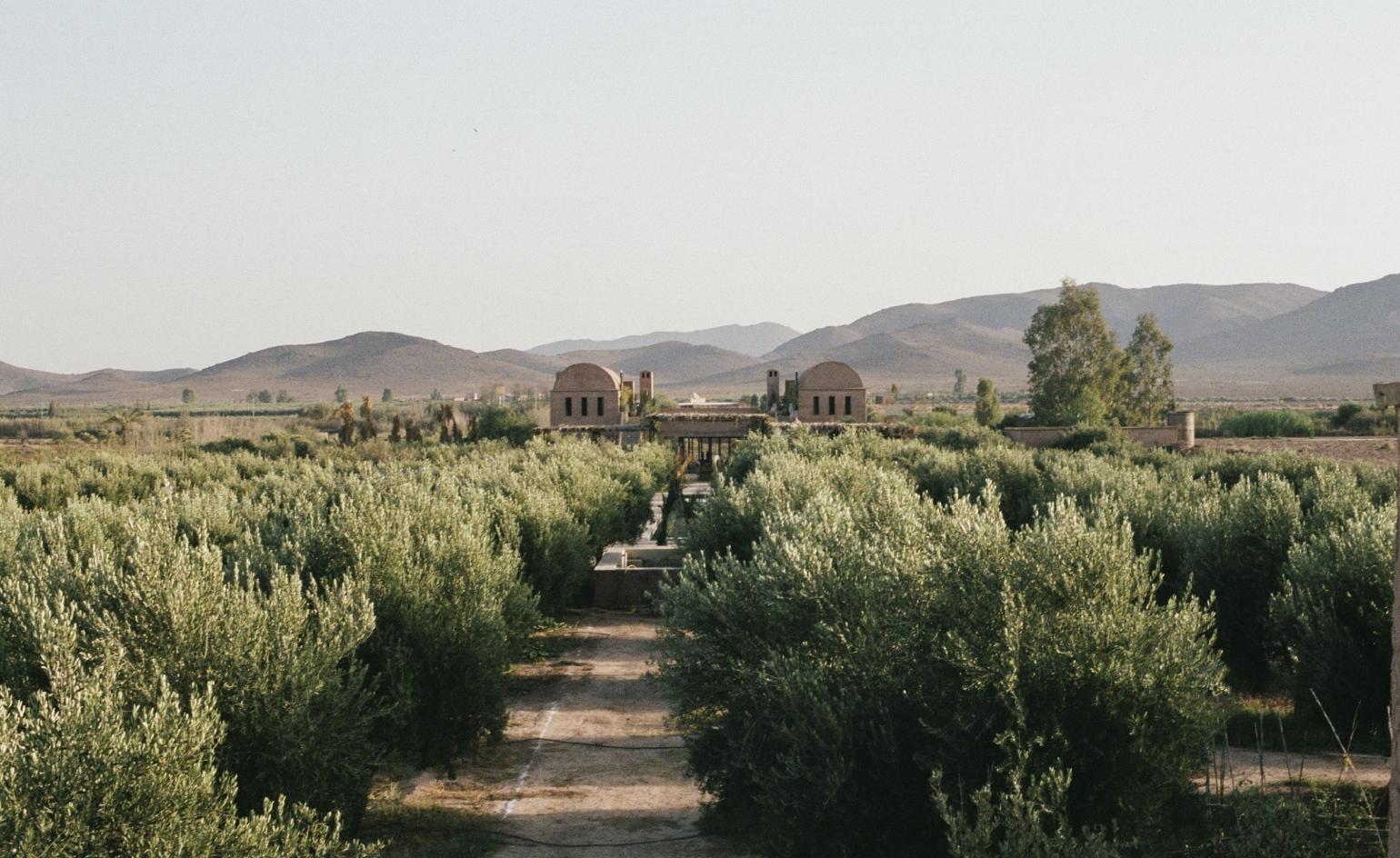
Farasha Farmhouse is only 40 minutes away from the centre of Marrakech, but the change of pace on the drive there – from frenetic to soporific – is a taste of what’s waiting on arrival. A passion project for Fred and Rosena Charmoy, founders of Marrakech-based events company Boutique Souk, the 3.5-hectare property is centred around the ochre-walled former home of French painter Patrice Arnaud, flanked by 450 mature olive trees. It’s an idyllic enough spot to inspire anyone to get the brushes and easel out.
Retreat to Farasha Farmhouse
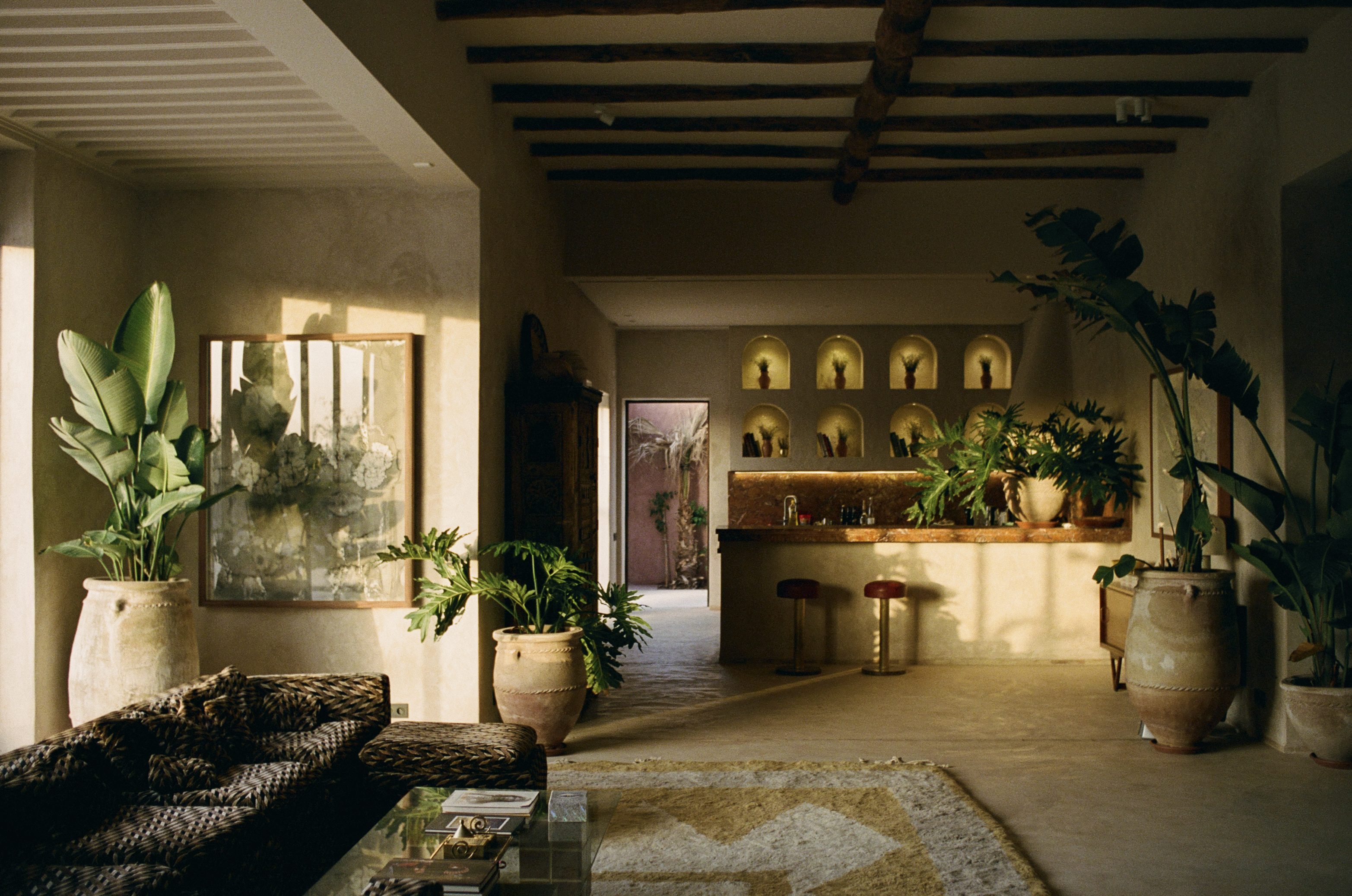
‘What first drew us was the artist’s room that had been used as an atelier,’ says Rosena. ‘When I walked in and saw the light and mountain views on both sides, I wanted to sleep there immediately.’
The Charmoys aimed to create a countryside escape from the city, a rustic agriturismo-style experience with music and art where they could also curate events. They enlisted Dorothée Ricard, Sylvain Ragueneau and Vincent Mahieu of Marrakech-based architects Aire au Carré to make the dream a reality. ‘We found great energy here,’ says Ragueneau.
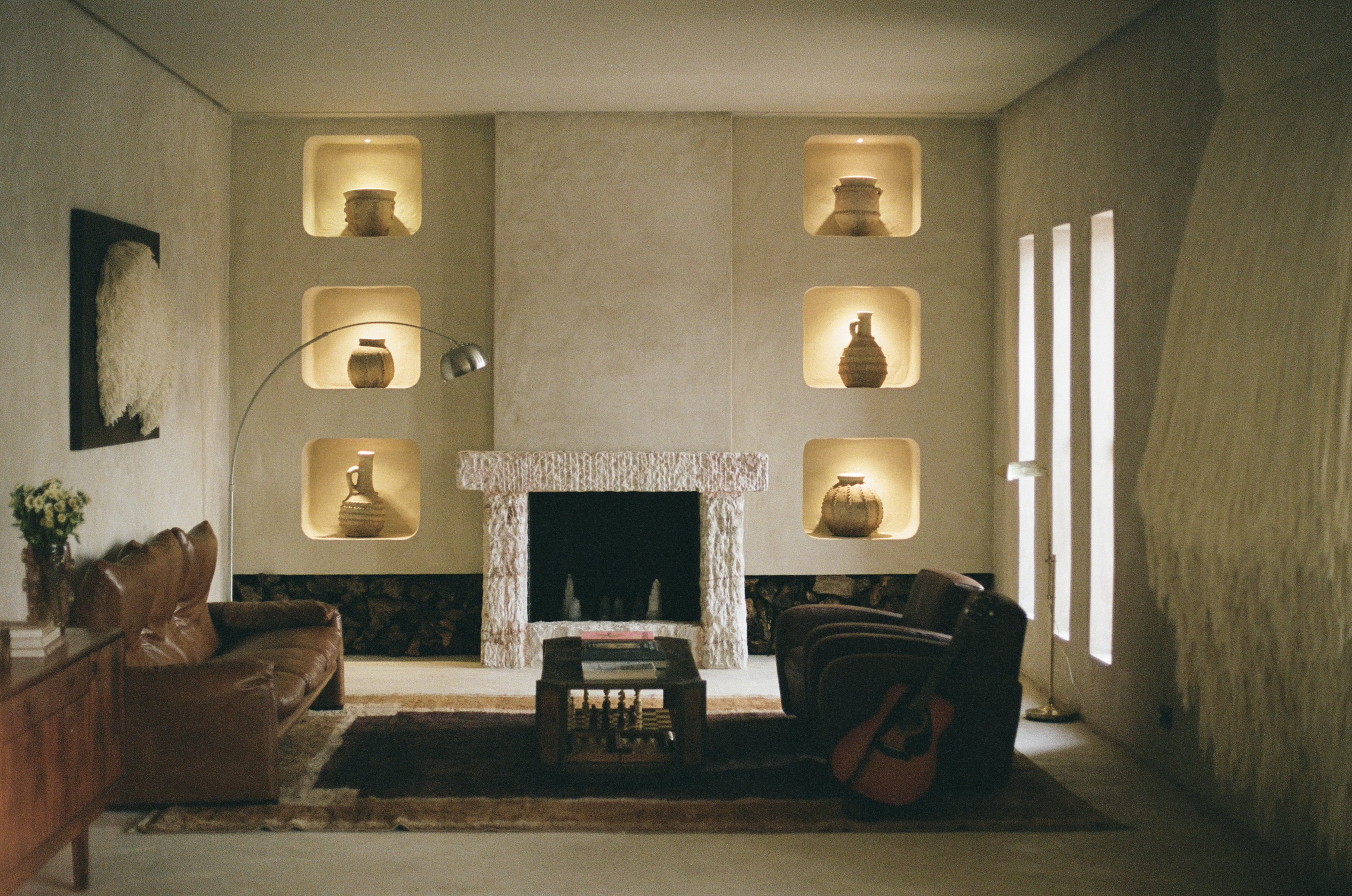
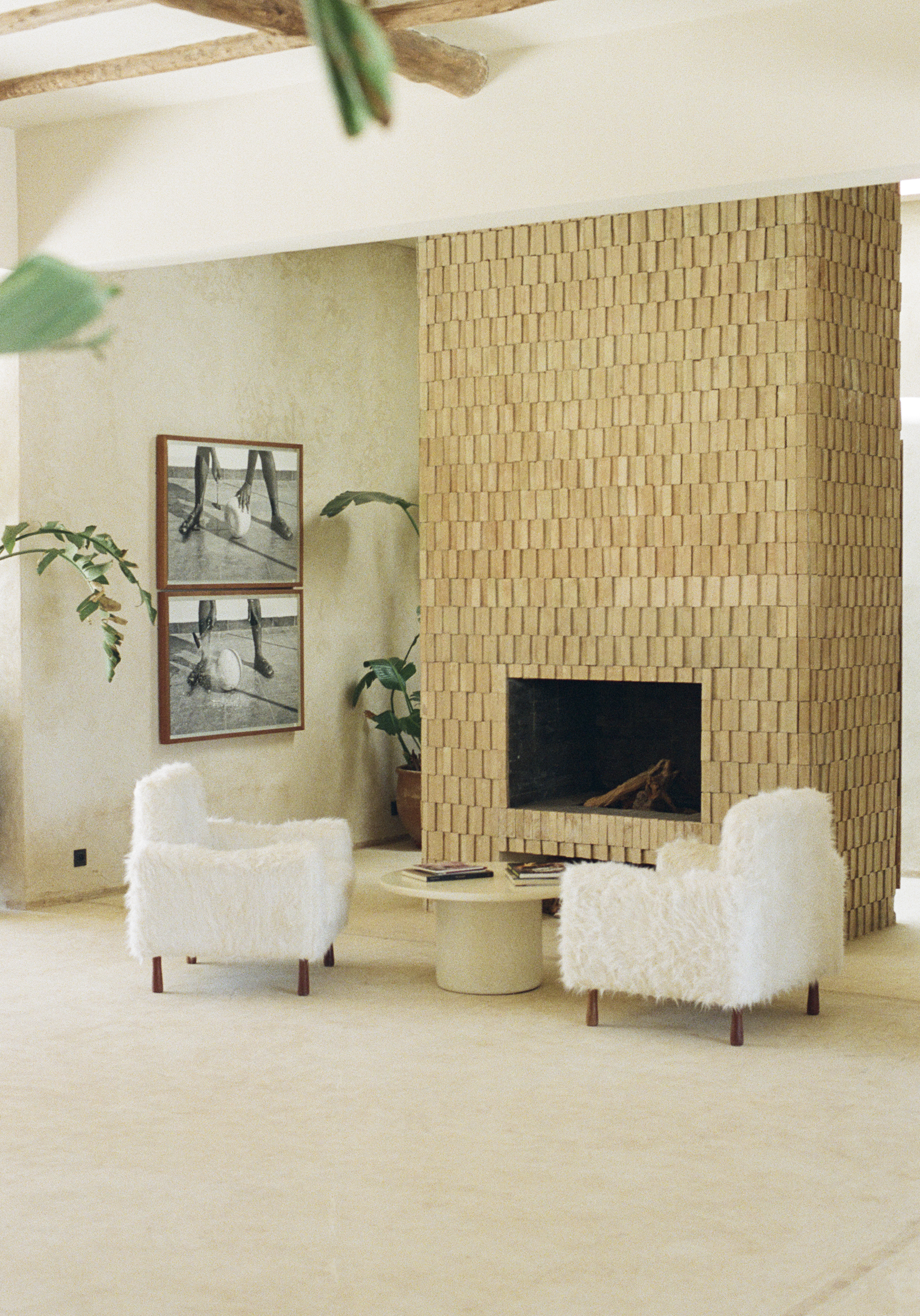
But it wasn’t without challenges. When the architects began the renovation work, it quickly became clear that the house was poorly constructed and needed to be rebuilt with anti-seismic measures. This turned out to be a blessing in disguise. When a 6.8-magnitude earthquake jolted the nearby High Atlas mountains in September last year, the house survived unscathed. ‘We didn’t lose even a single lightbulb,’ says Rosena.
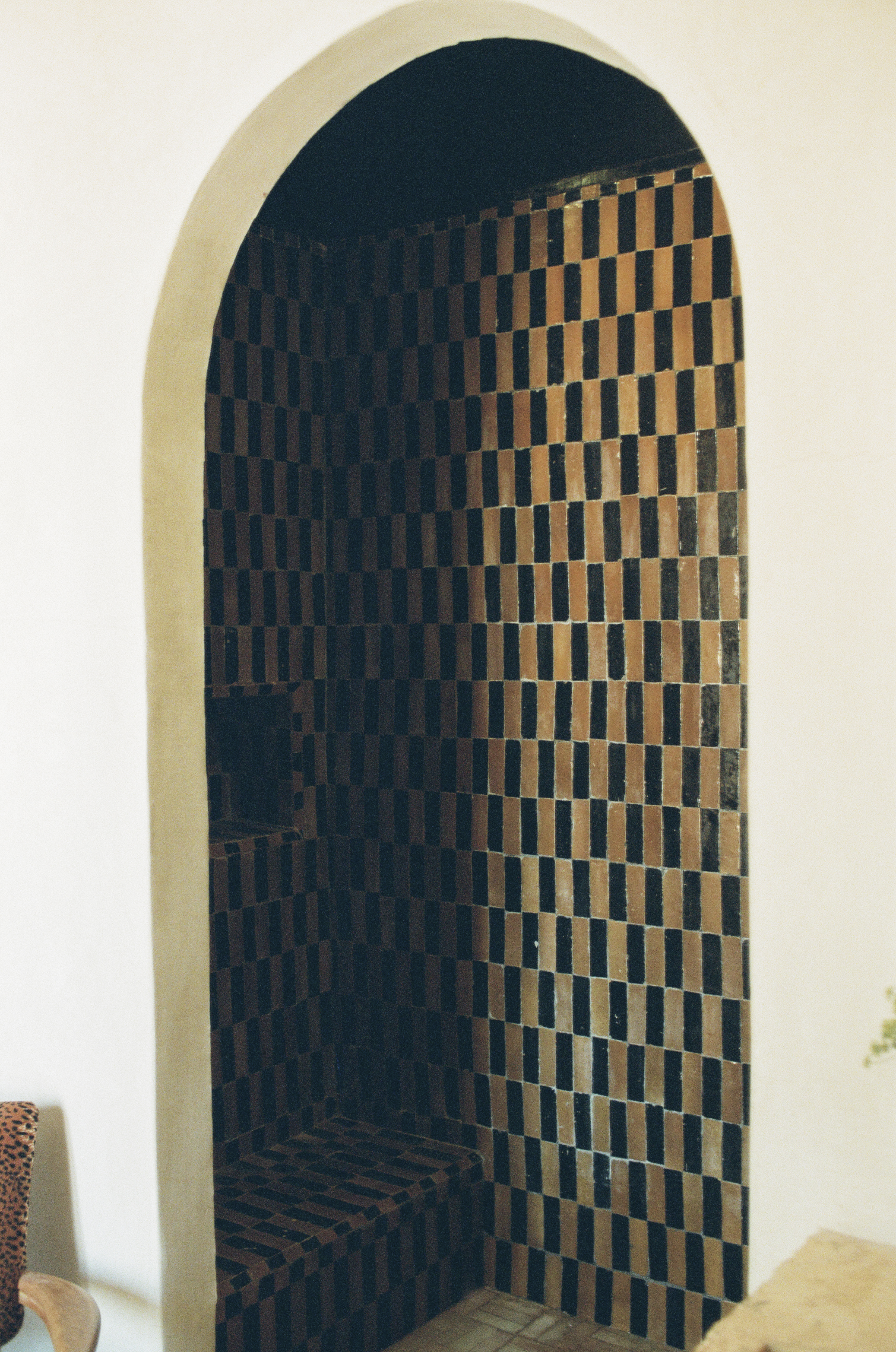
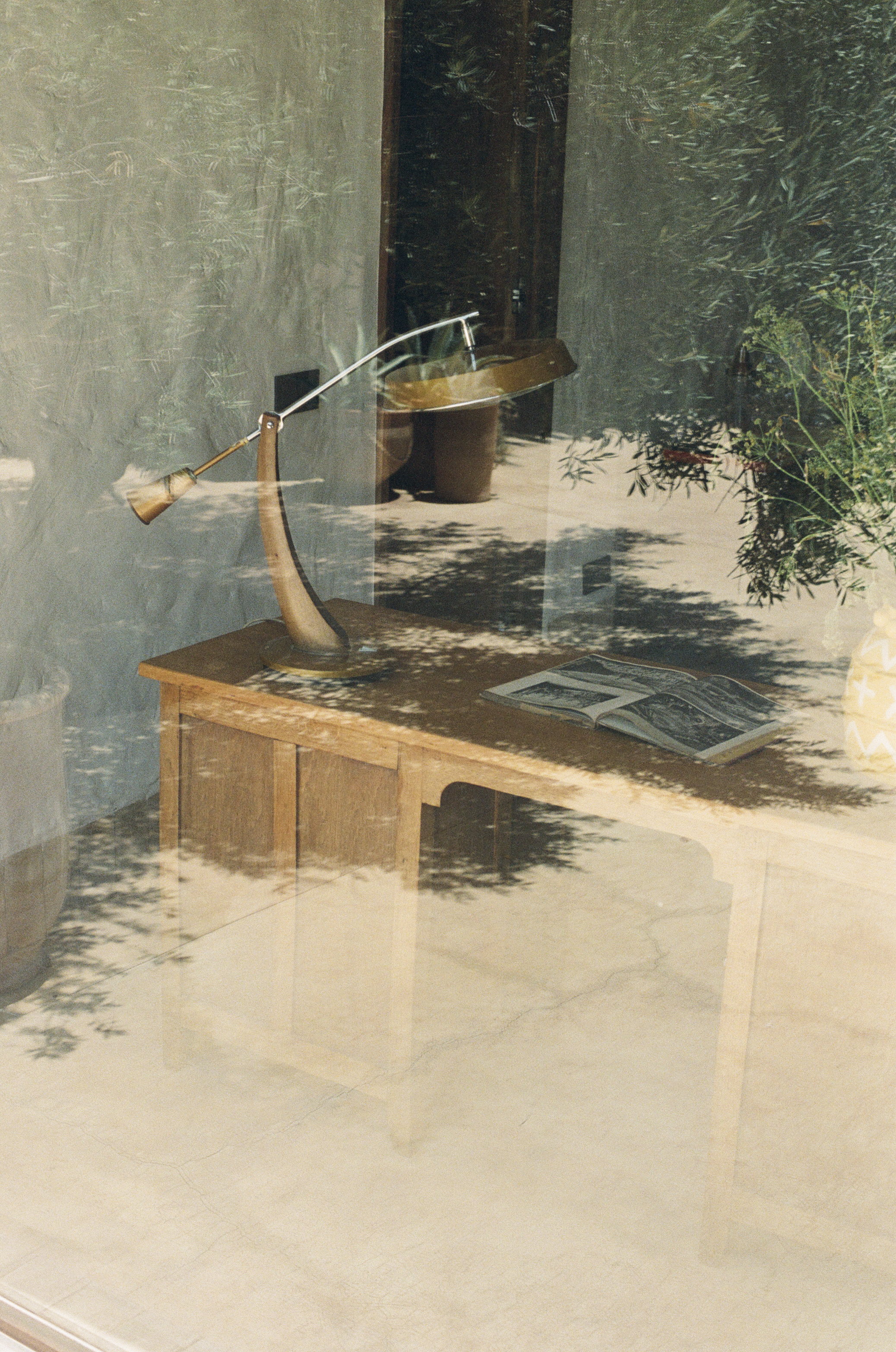
The original house was designed like a riad, centred on an open courtyard with a single domed roof. For the rebuild, Aire au Carré enclosed the courtyard, creating a rooftop terrace and adding a second domed roof to create what Ragueneau describes as a ‘reassuring feeling’ of symmetry.
The domes top two 62 sq m suites with bathtubs that look out over the olive groves. Vintage furniture and pieces from local designers – hand-woven textiles from Beni Rugs and ceramics from LRNCE – complement the spaces, along with vernacular materials like Tadelakt polished plaster and Bejmat tiles. A third suite sits on the ground floor, and an additional ‘shepherd’s cottage’ lies adjacent to the main house. Six more rooms will be added later in 2024.

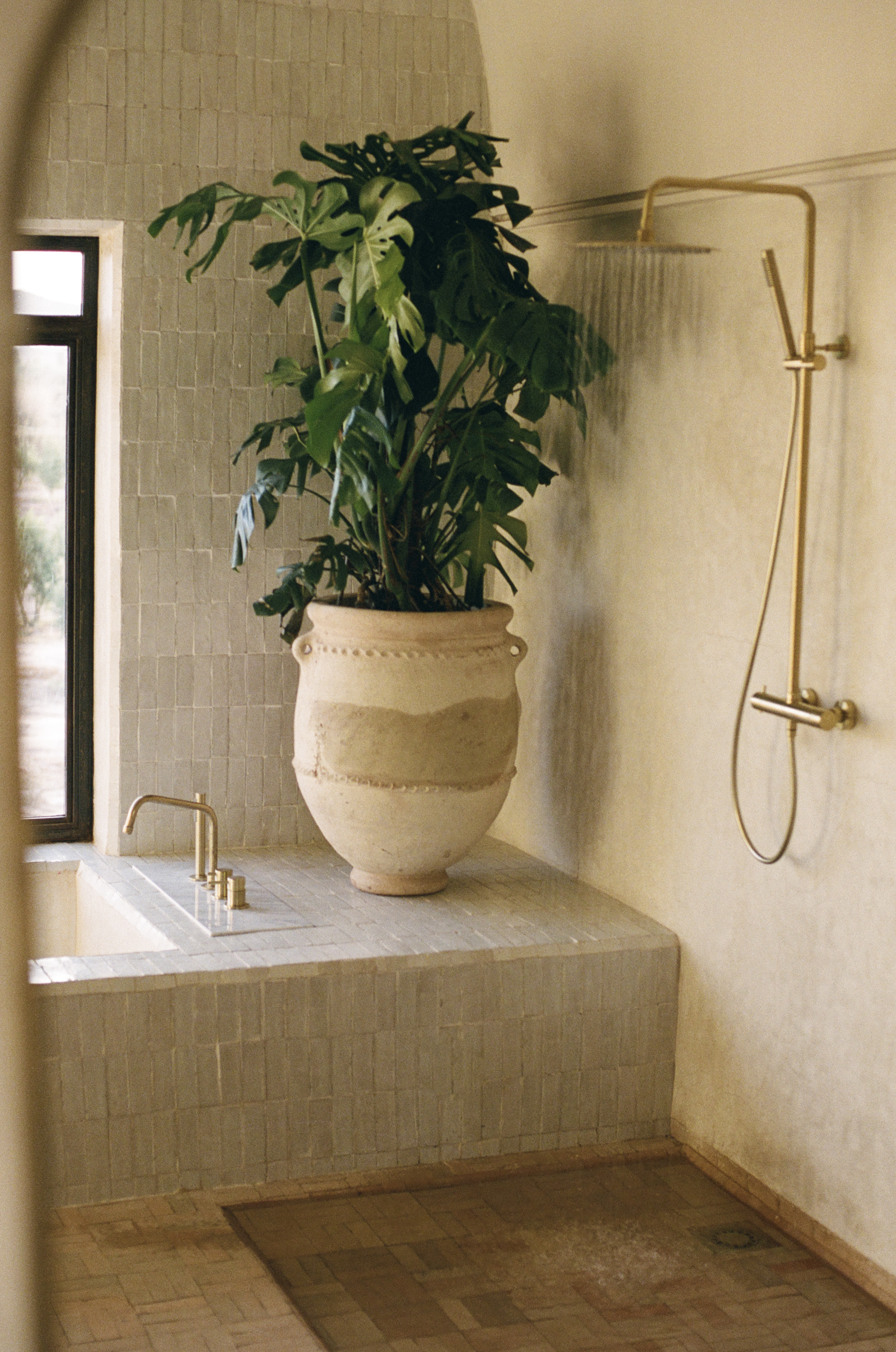
The Charmoys also have an extraordinary book collection, gifted to them by Freck Vreeland, a former US ambassador to Morocco, CIA agent and son of iconic fashion editor Diana Vreeland. ‘We’re still placing them as we have so many,’ says Rosena. ‘It’s lovely to have a real library made up of a family collection.’
Wallpaper* Newsletter
Receive our daily digest of inspiration, escapism and design stories from around the world direct to your inbox.
Outdoors, traditional Moroccan breakfasts, cooked by two women from the neighbouring village, are served beneath a pergola, and lunches revolve around barbecues and salads made with ingredients from local farms, friends and neighbours. Eventually, the Charmoys plan to supplement this with produce from their own gardens.
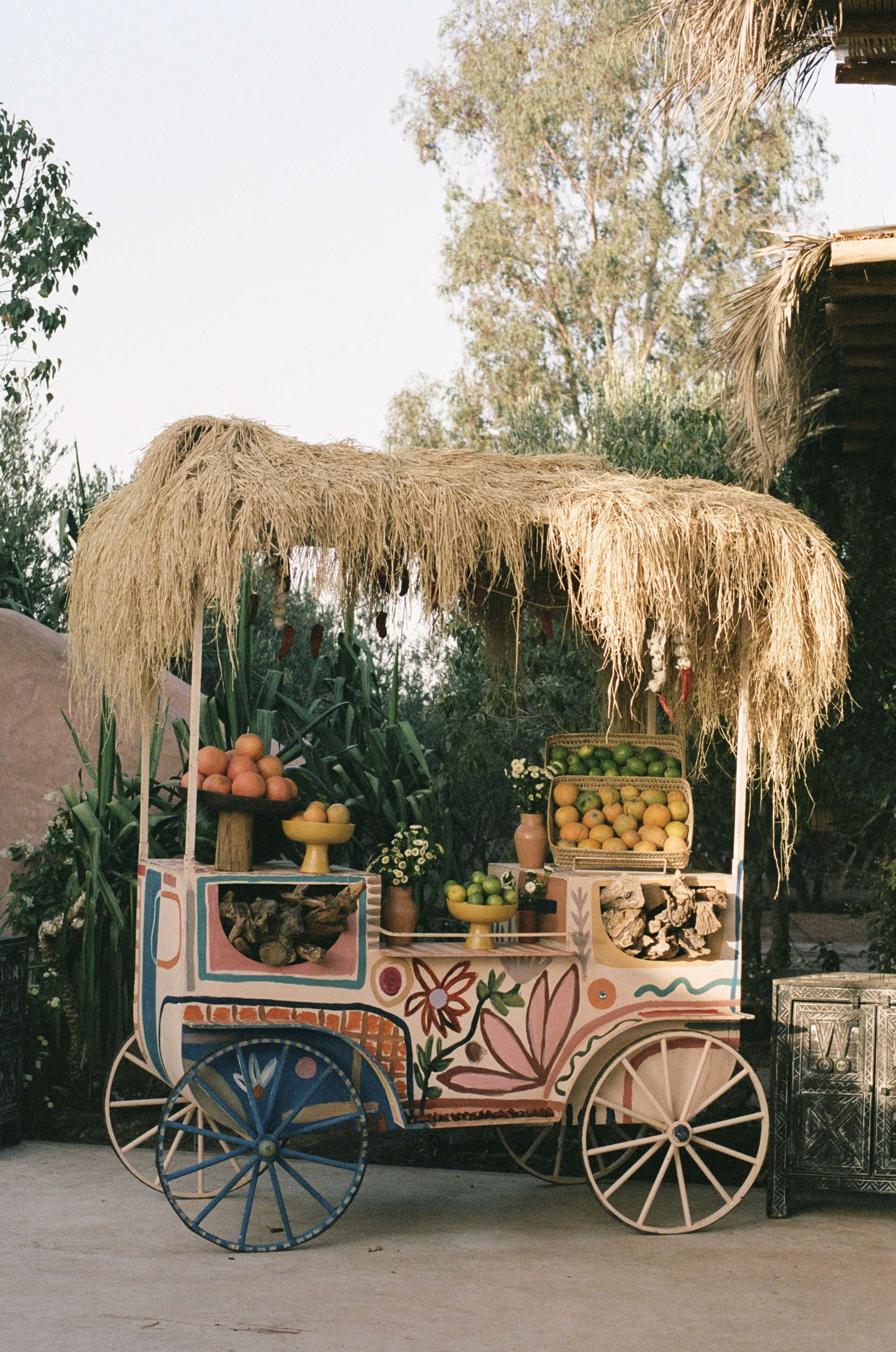
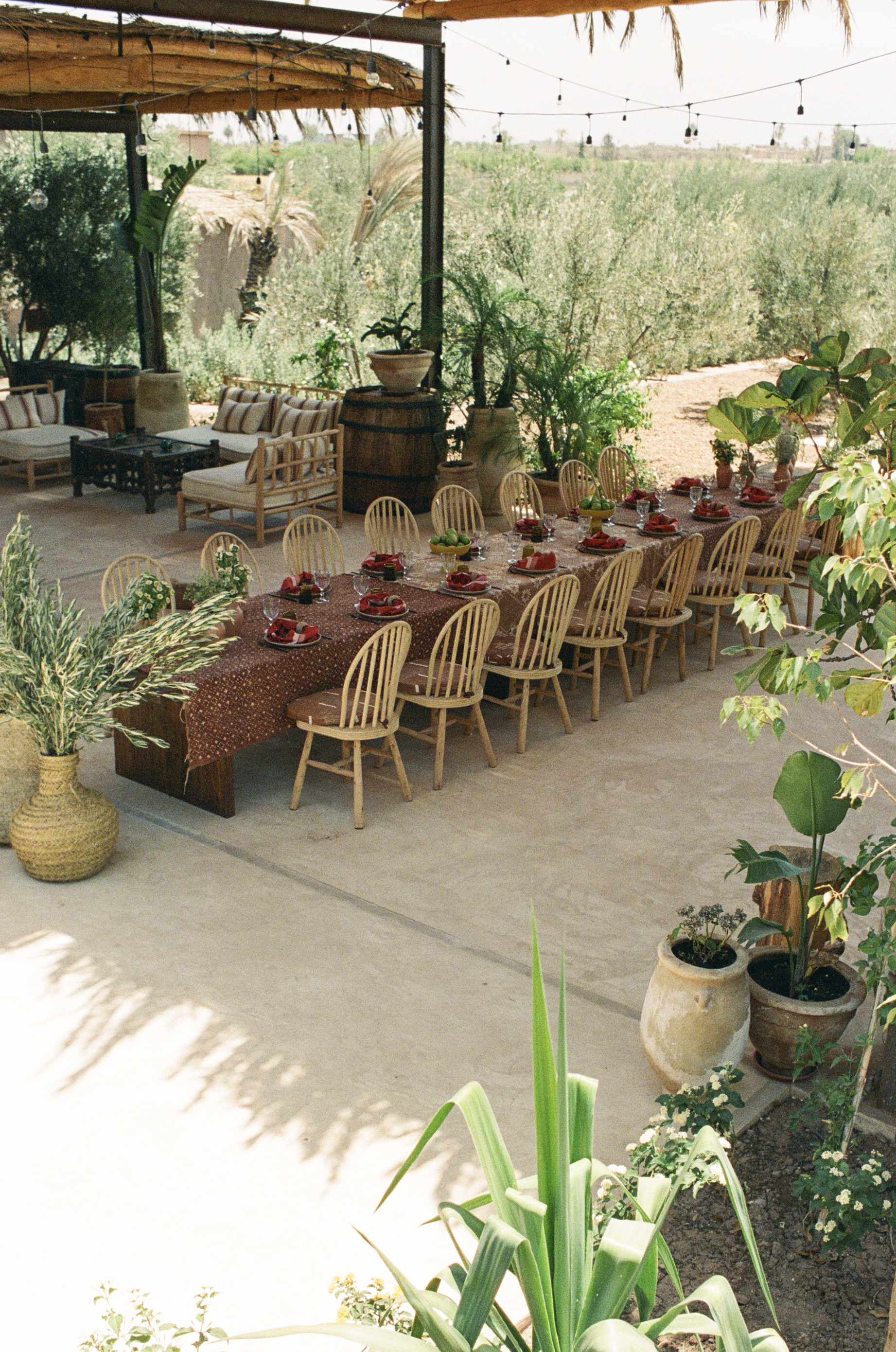
Landscape designers Marius Boulesteix and Abderrahim El Hout of Pan Priape have stuck to using only local materials in the gardens, like the pathway of argan nut shells used in place of gravel, their husks clinking and crunching underfoot with an almost metallic sound. They’re also experimenting to see what will grow here. Dead leaves, kitchen scraps and waste from MC Hammer the donkey and the farm’s chickens, whose enclosure is so fancy that Fred has christened it ‘Amanpoulet’, add nutrients to the soil. ‘The animals here are not just for decoration,’ says Boulesteix. ‘They’re part of the garden’s ecosystem.’
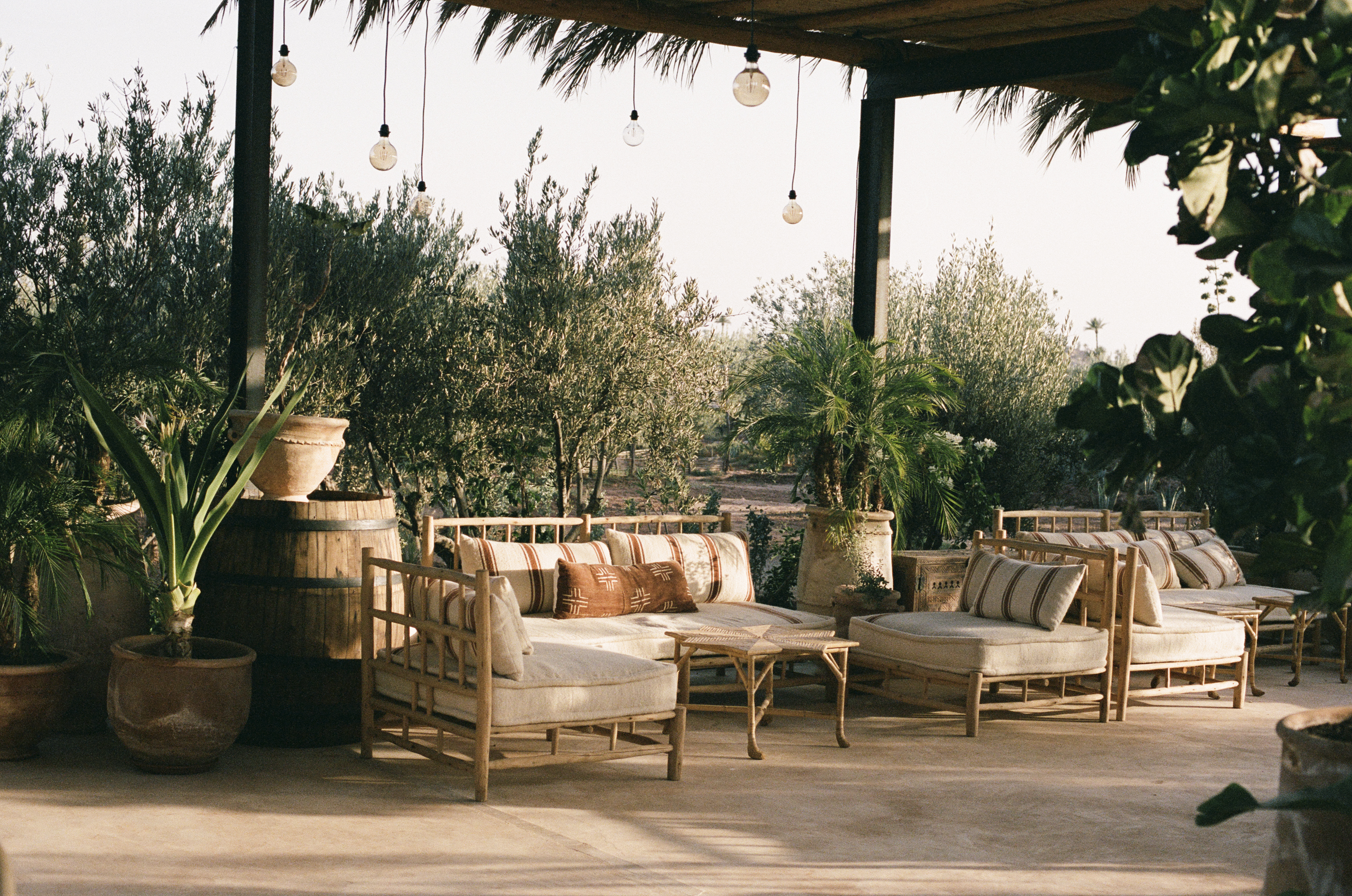
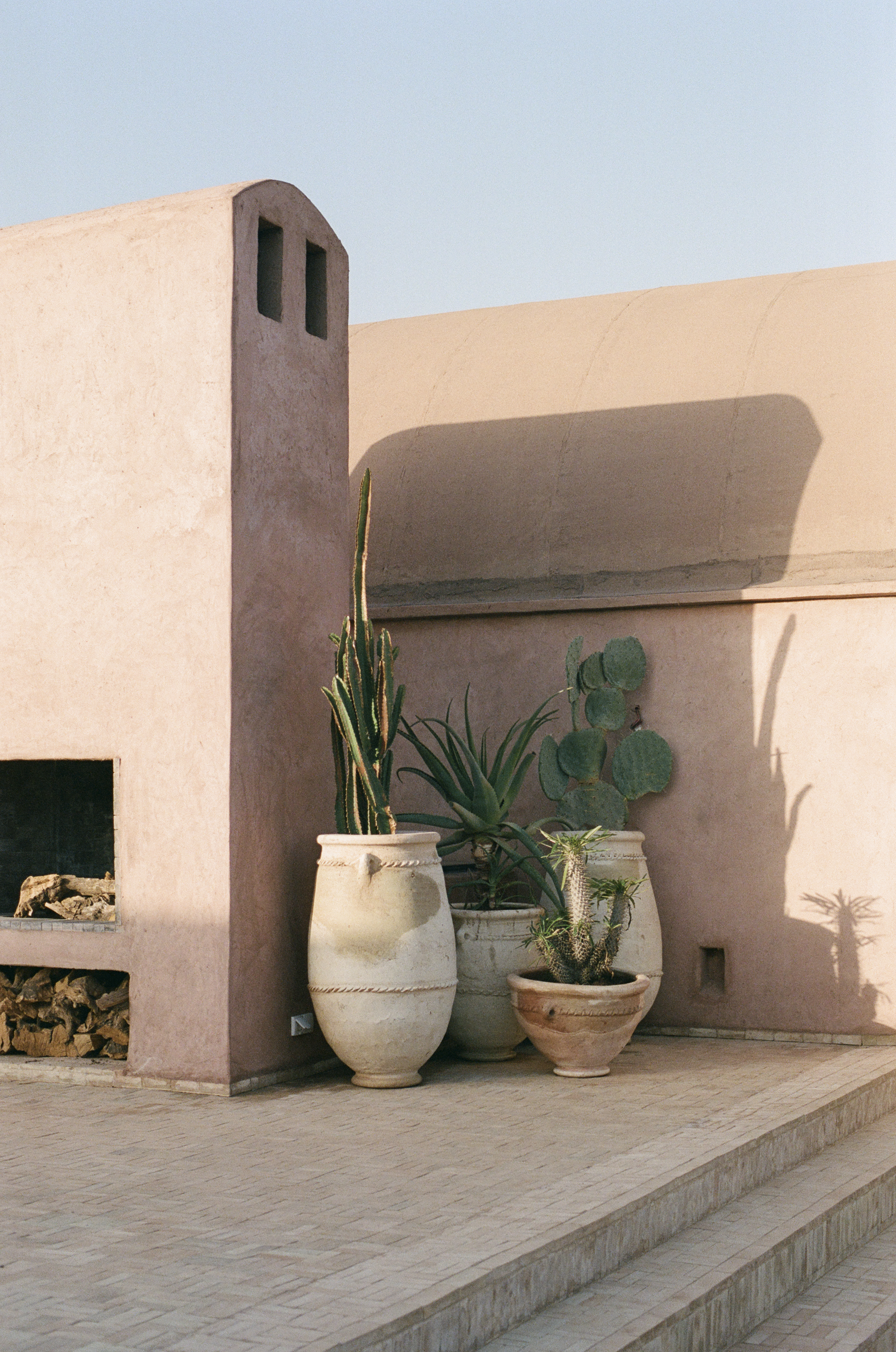
But perhaps the most unexpected element of Farasha Farmhouse is the 50m swimming pool that stretches between two rows of olive trees through the centre of the property. ‘We didn’t move a single tree, and even added bigger trees to give more shade on the pool, playing with the wind and sun to create little intimate spaces,’ says Boulesteix.
Related article
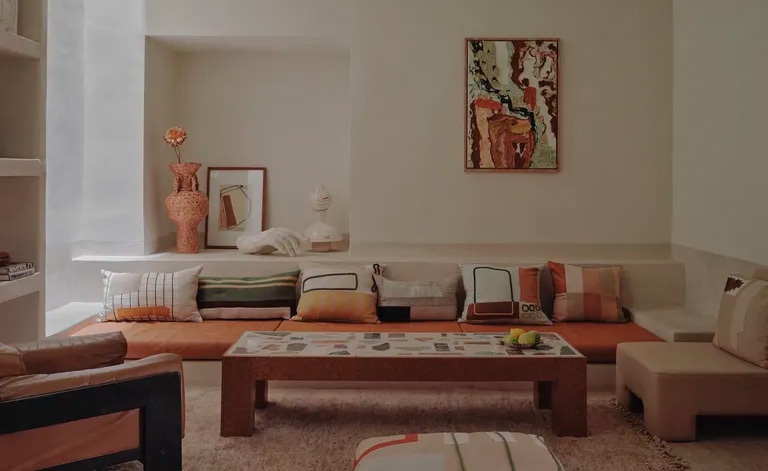
As iridescent dragonflies and butterflies – farasha in the local Darija language – flit over the surface of the pool and the breeze rustles the olive leaves, this all feels very far from the mêlée of Marrakech, yet is still imbued with its magic. ‘We were charmed by the project from the very first moment,’ says Ragueneau. Anyone who visits Farasha Farmhouse is likely to feel the same.
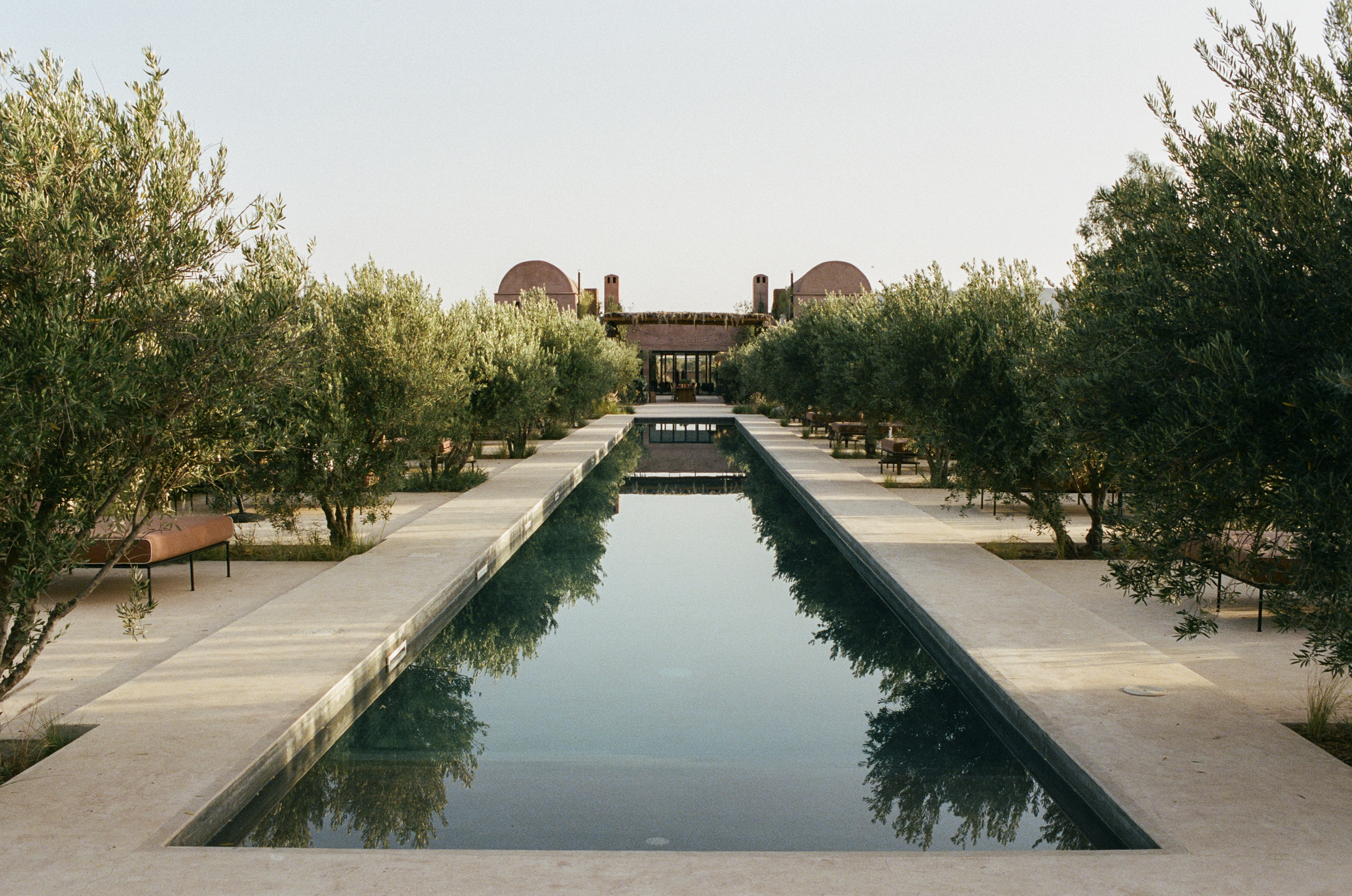
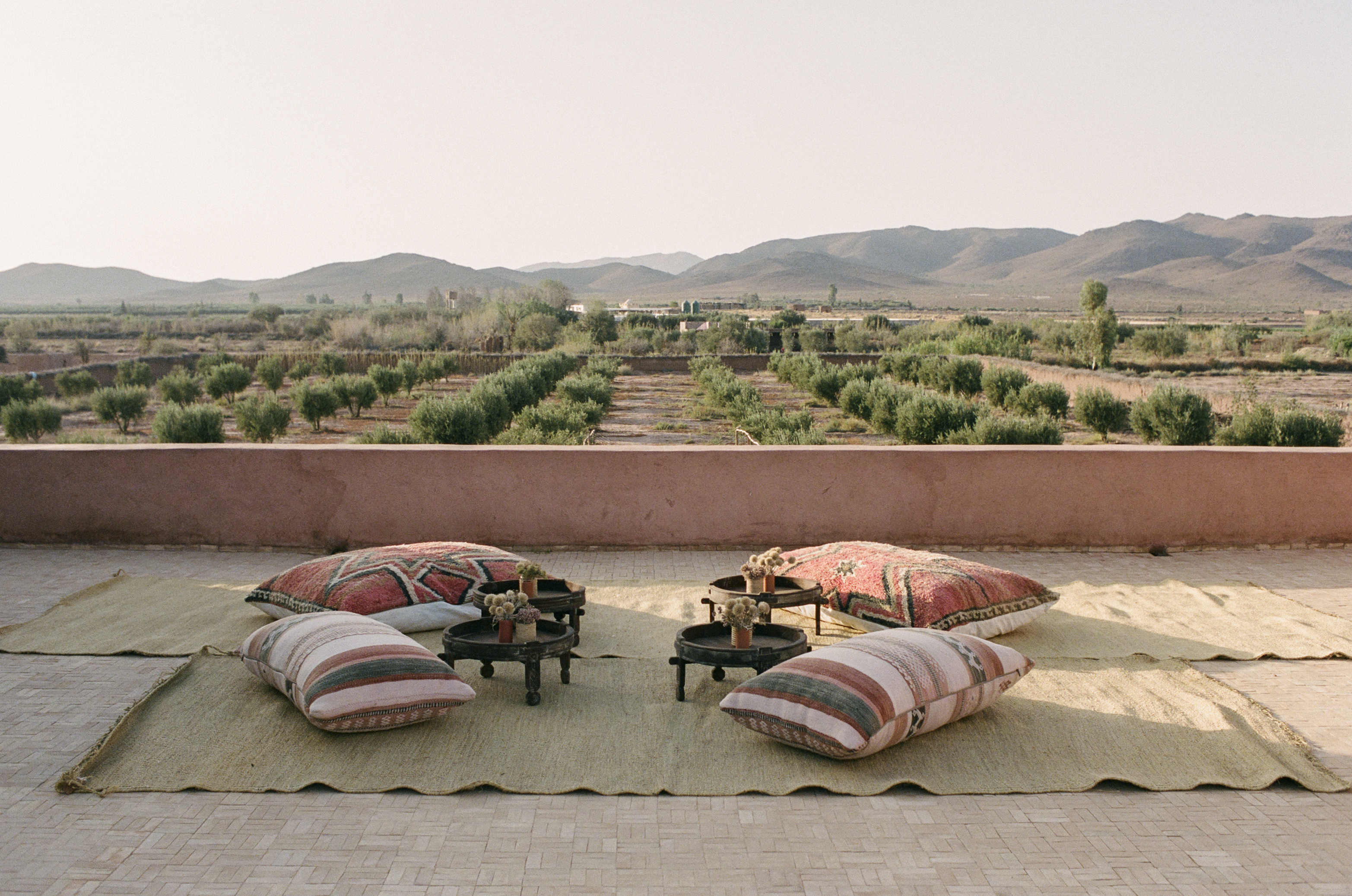
Farasha Farmhouse is located at KM30 Route de Fes, Jaidate Marrakech
Yorkshire-born writer Nicola Chilton has lived and worked in Mexico, Japan, Hong Kong and Thailand, and has made the United Arab Emirates home for the past nine years. She writes about people and places for international publications, including Afar, Centurion, Departures, The Times and many more, and is a contributing editor at Condé Nast Traveller Middle East.
-
 Put these emerging artists on your radar
Put these emerging artists on your radarThis crop of six new talents is poised to shake up the art world. Get to know them now
By Tianna Williams
-
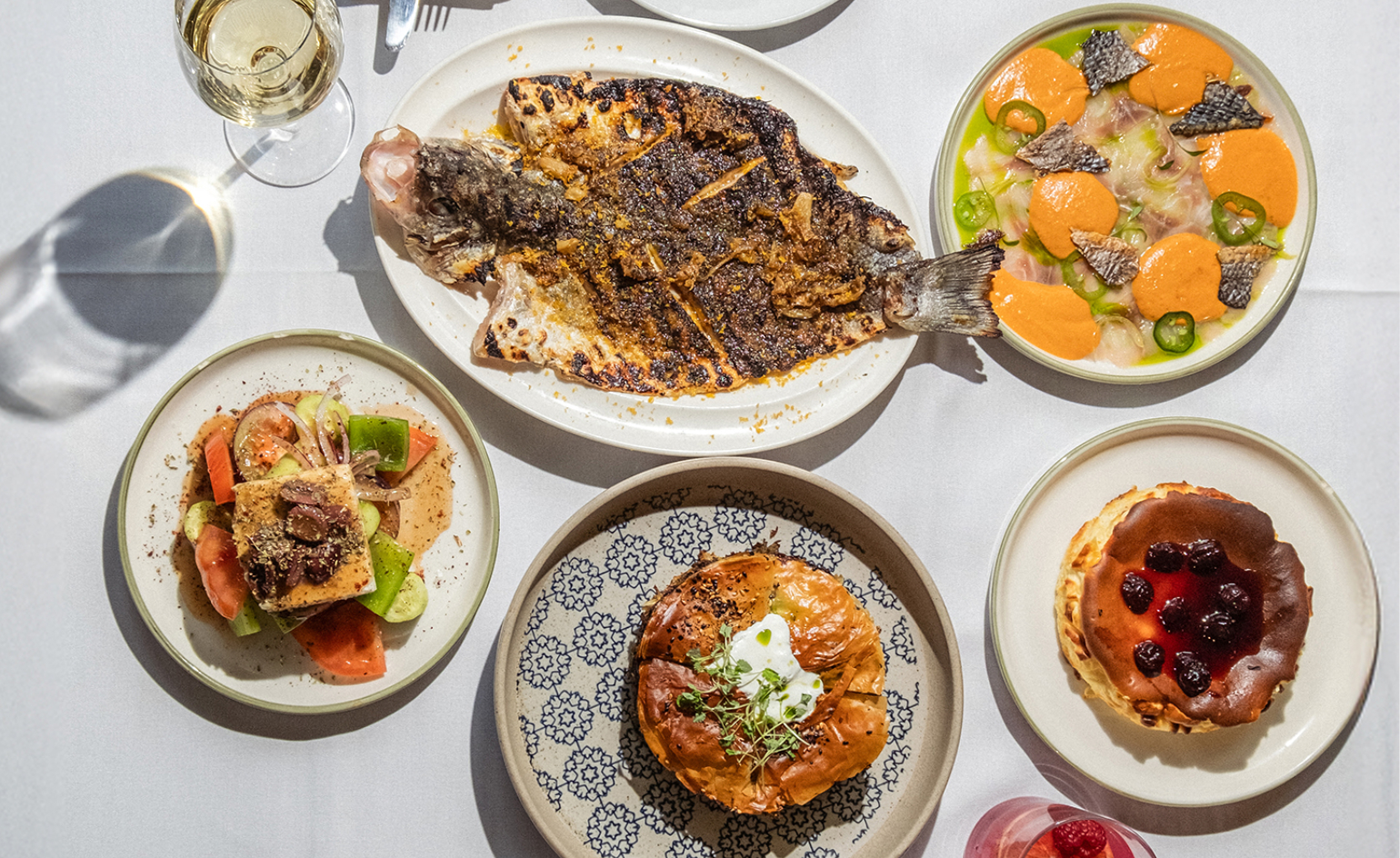 Dining at Pyrá feels like a Mediterranean kiss on both cheeks
Dining at Pyrá feels like a Mediterranean kiss on both cheeksDesigned by House of Dré, this Lonsdale Road addition dishes up an enticing fusion of Greek and Spanish cooking
By Sofia de la Cruz
-
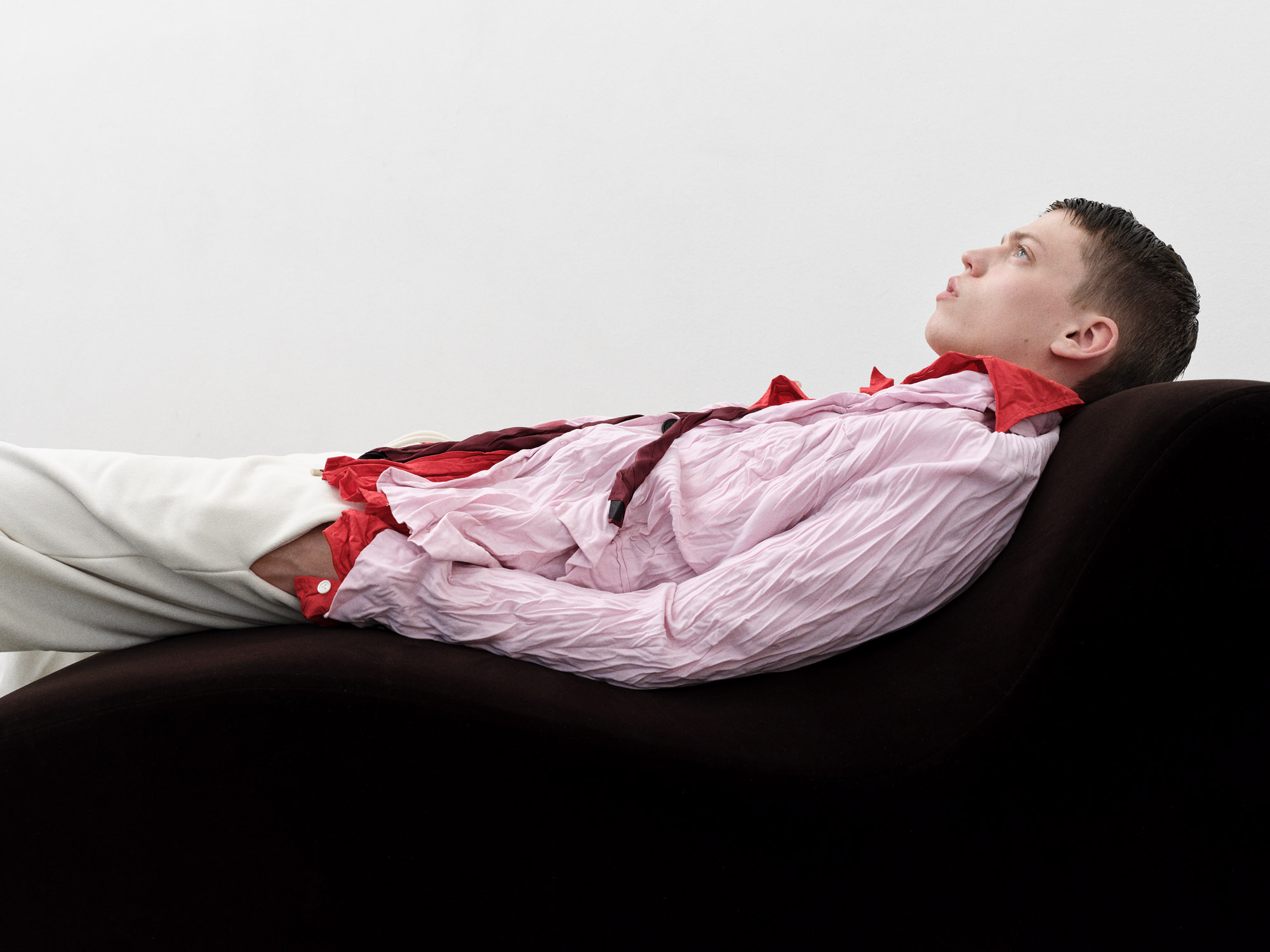 Creased, crumpled: S/S 2025 menswear is about clothes that have ‘lived a life’
Creased, crumpled: S/S 2025 menswear is about clothes that have ‘lived a life’The S/S 2025 menswear collections see designers embrace the creased and the crumpled, conjuring a mood of laidback languor that ran through the season – captured here by photographer Steve Harnacke and stylist Nicola Neri for Wallpaper*
By Jack Moss
-
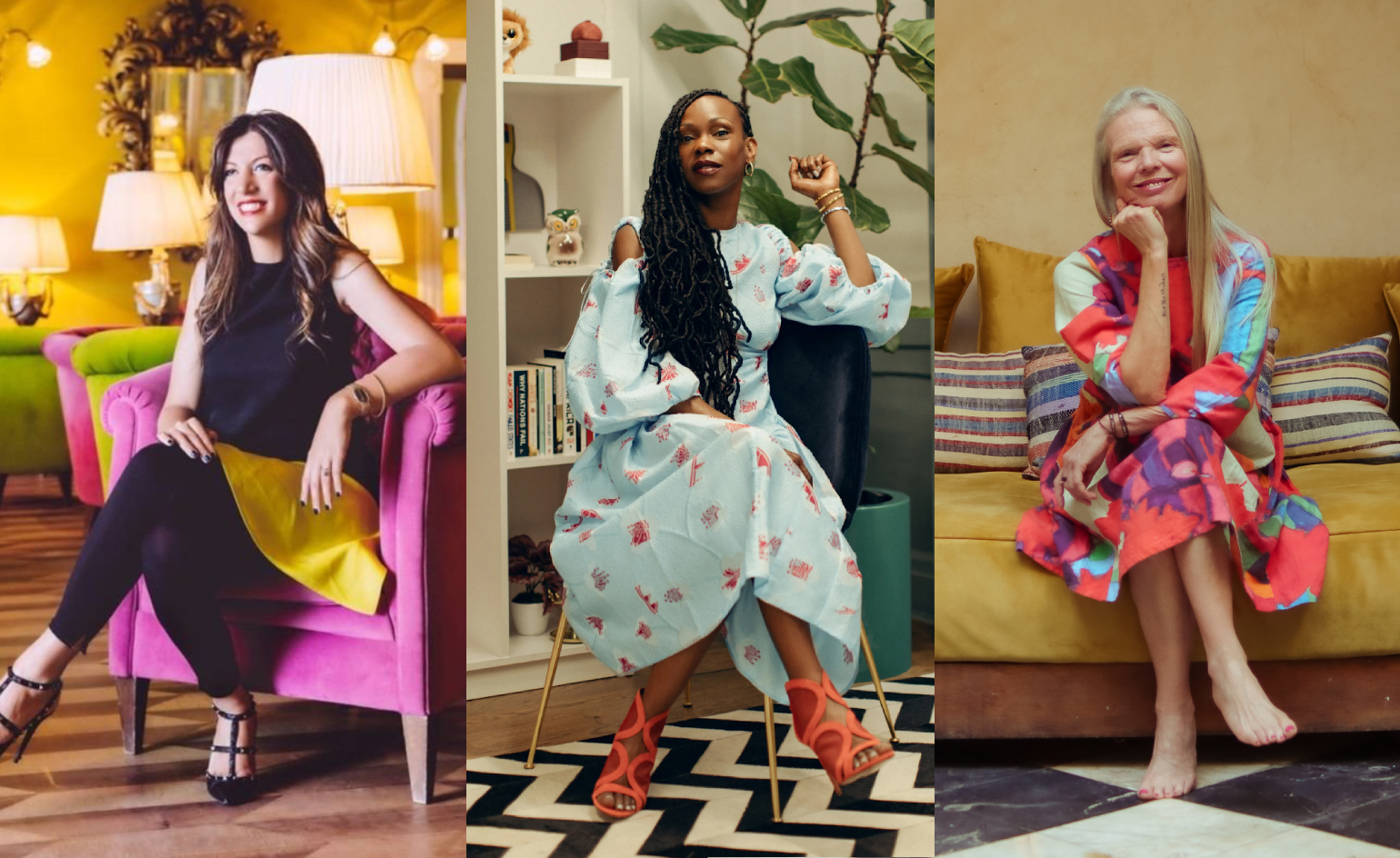 Five influential women hoteliers reflect on the changing face of hospitality
Five influential women hoteliers reflect on the changing face of hospitalityAs women continue to gain ground in the hotel sector, despite still being underrepresented in senior positions, five female moguls share their experiences of the past and projections for the future
By Anna Solomon
-
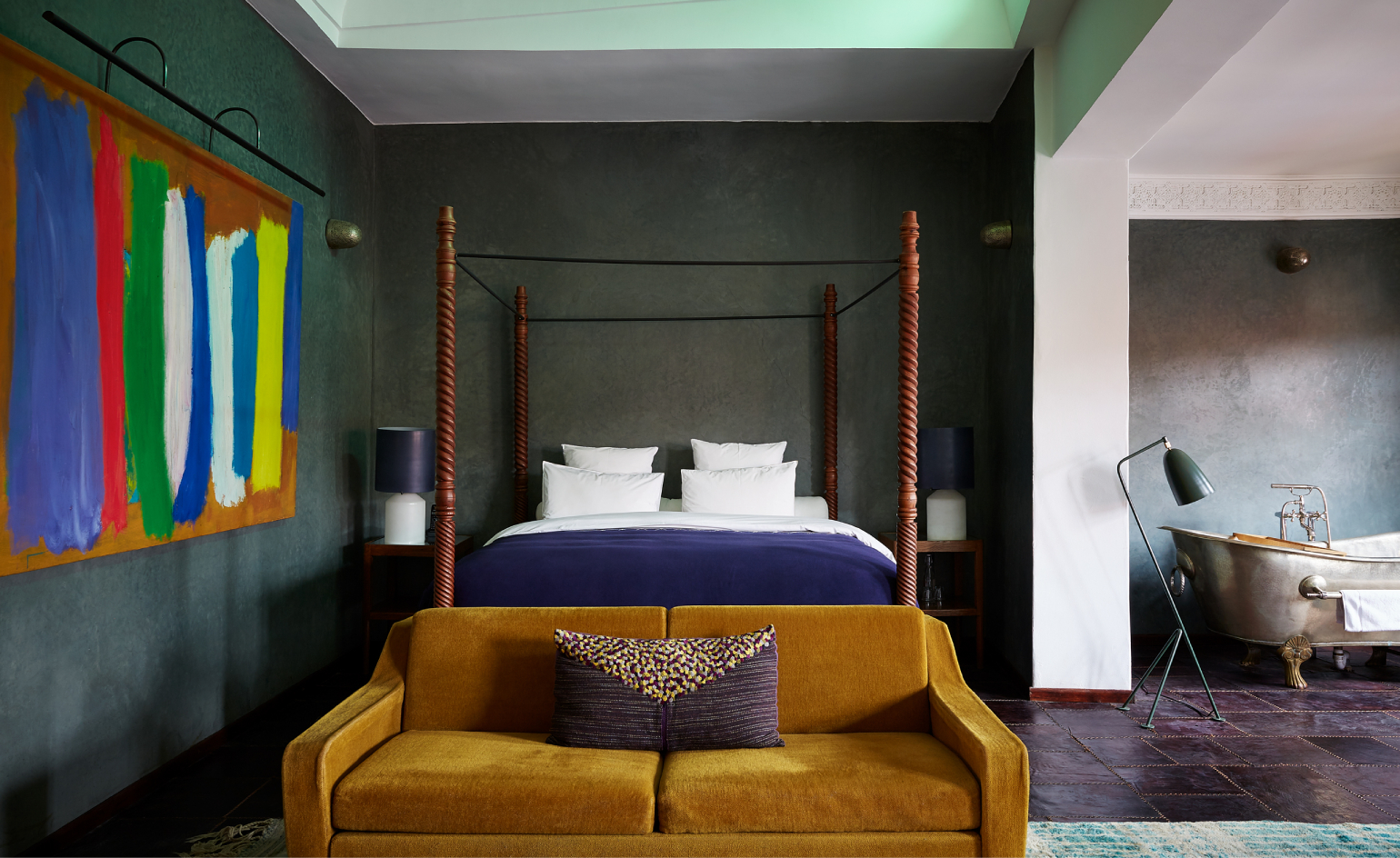 Night at the museum: the best art hotels to book now
Night at the museum: the best art hotels to book nowSleep amid surrealists at London’s Broadwick Soho, or wake up to contemporary favourites at New Hotel in Athens – indulge in an immersive art hotel experience
By Dalya Benor
-
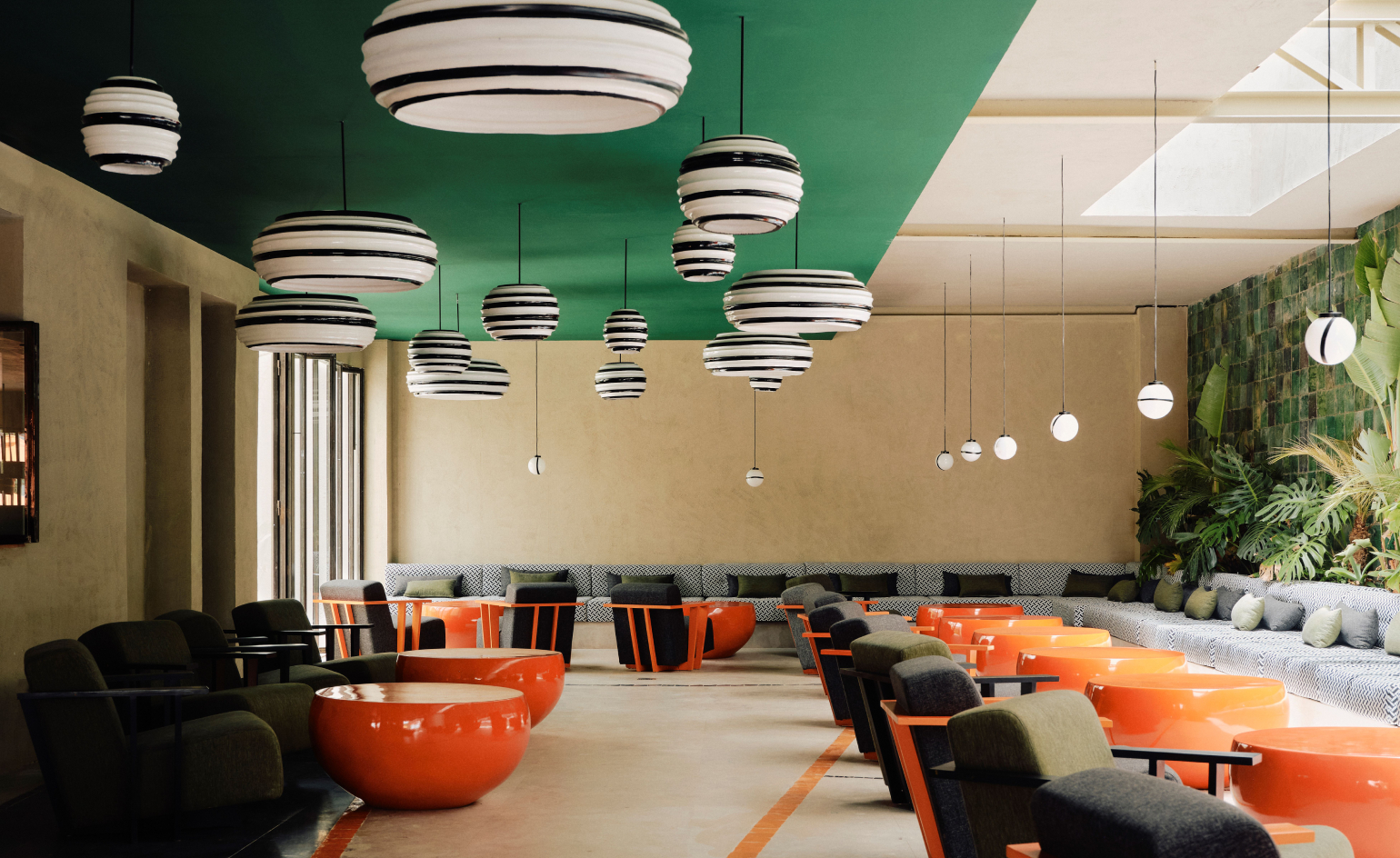 The design-led restaurants to know in 2025
The design-led restaurants to know in 2025This year’s most read-about restaurant openings to inspire your 2025 cravings, from a playful diner in New York to an art-and-dining hub in Marrakech
By Sofia de la Cruz
-
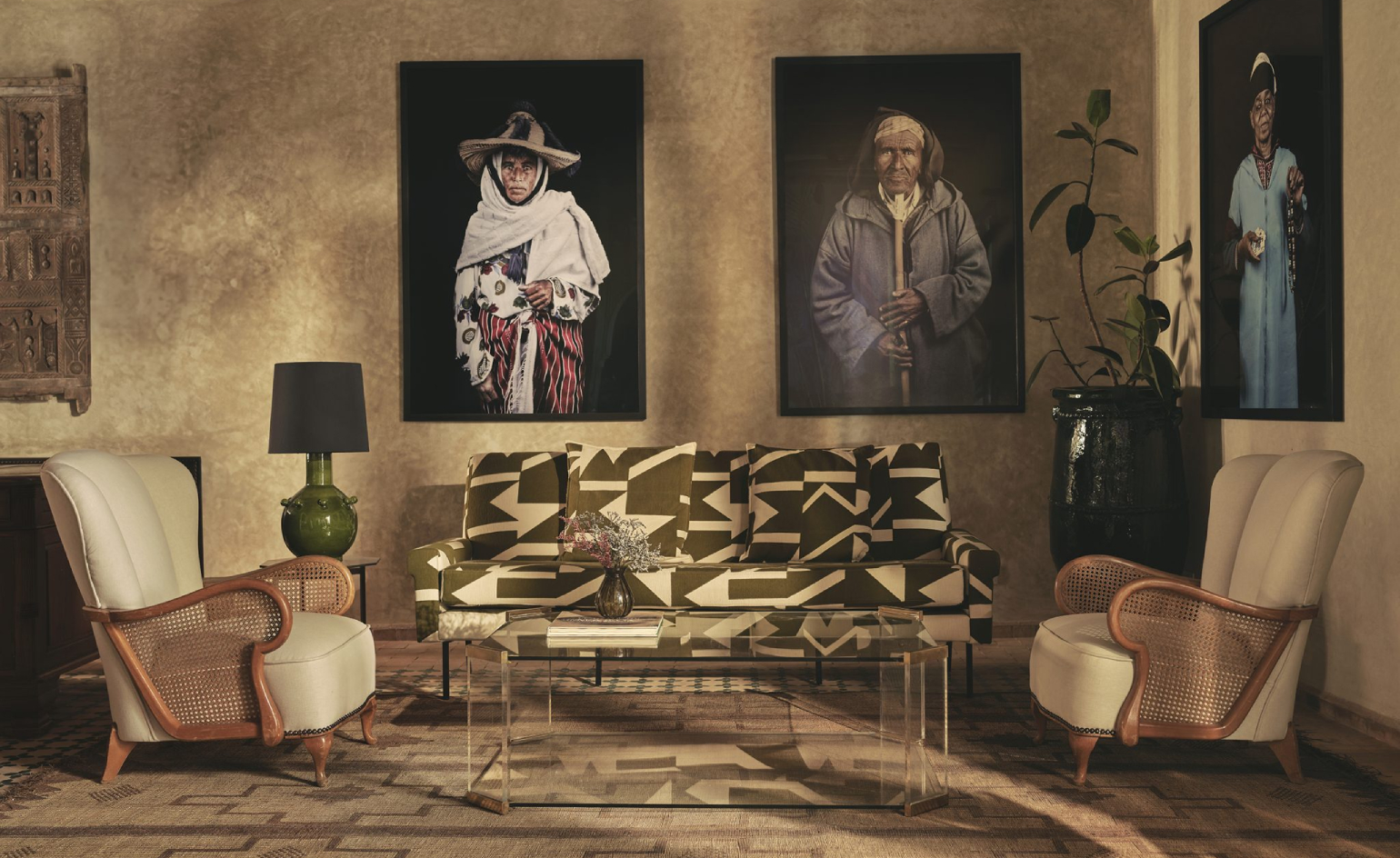 Inside Izza Marrakech: A new riad where art and bohemian luxury meet
Inside Izza Marrakech: A new riad where art and bohemian luxury meetHonouring the late Bill Willis’ hedonistic style, Izza Marrakech fuses traditional Moroccan craftsmanship with the best of contemporary art
By Ty Gaskins
-
 DaDa Marrakech: where art, culture and cuisine converge
DaDa Marrakech: where art, culture and cuisine convergeIn the heart of Medina, DaDa Marrakech is a restaurant and art hub offering a multilevel culinary journey in touch with the city's rich past and vibrant future
By Ty Gaskins
-
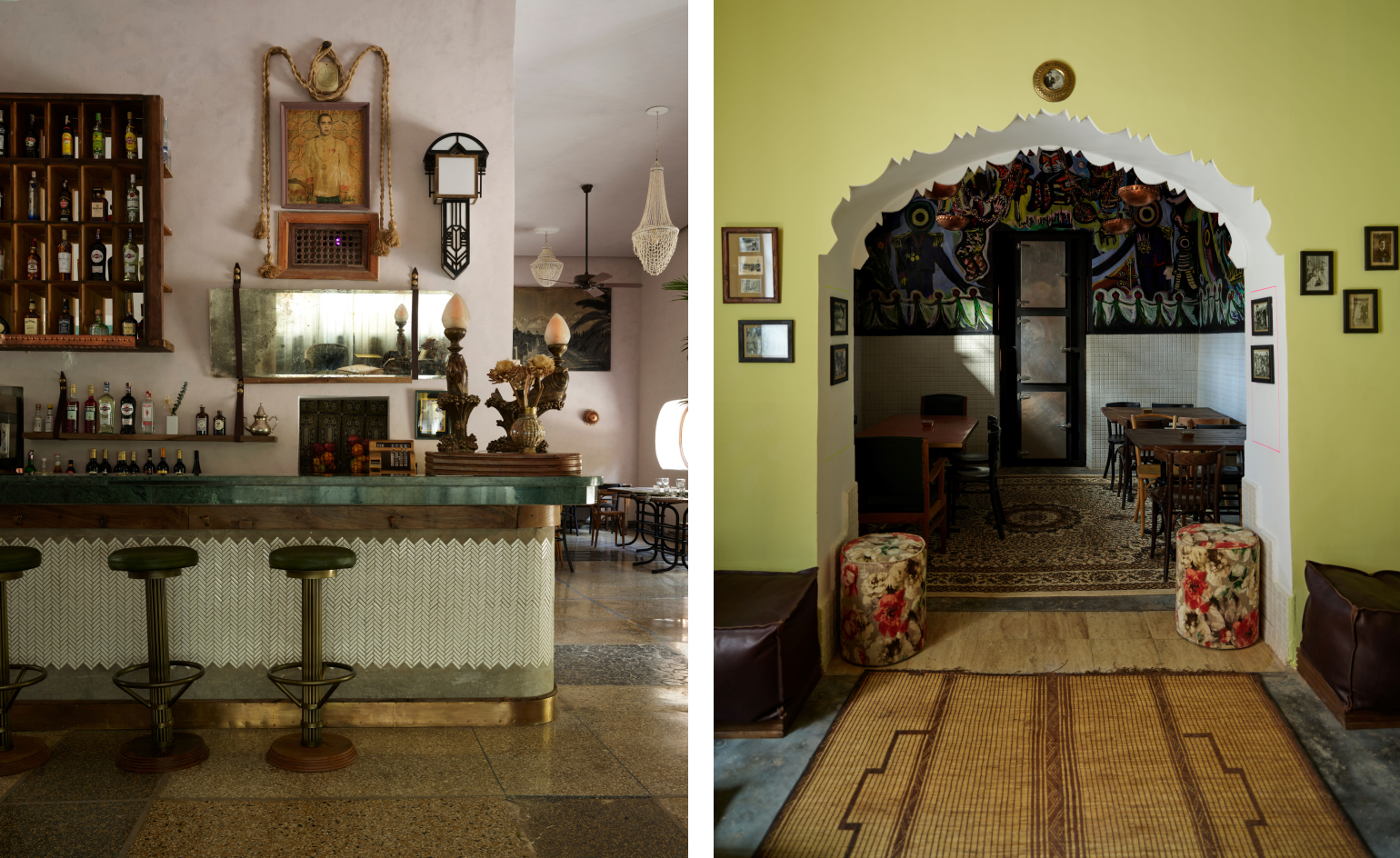 The rebirth of Marrakech’s Pétanque Social Club
The rebirth of Marrakech’s Pétanque Social ClubPétanque Social Club is Marrakech’s hottest new hangout, by restaurateur Kamal Laftimi
By Nicola Chilton
-
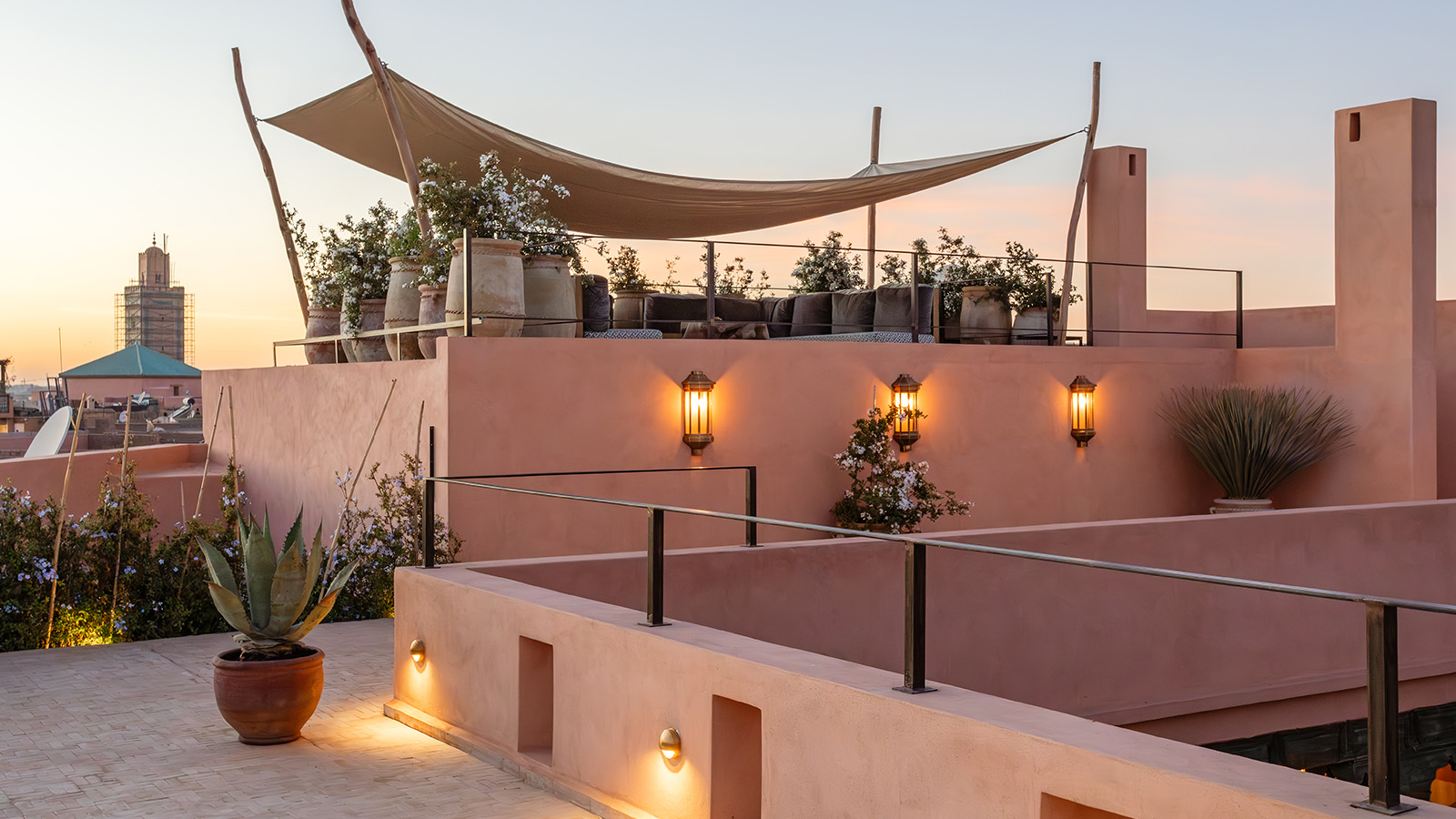 At restored Marrakech riad Dar Al Dall, local authenticity meets contemporary flair
At restored Marrakech riad Dar Al Dall, local authenticity meets contemporary flairDar All Dall, a newly renovated Marrakech riad from This Time Tomorrow, is a jewelled oasis full of local warmth and sophistication
By Tianna Williams
-
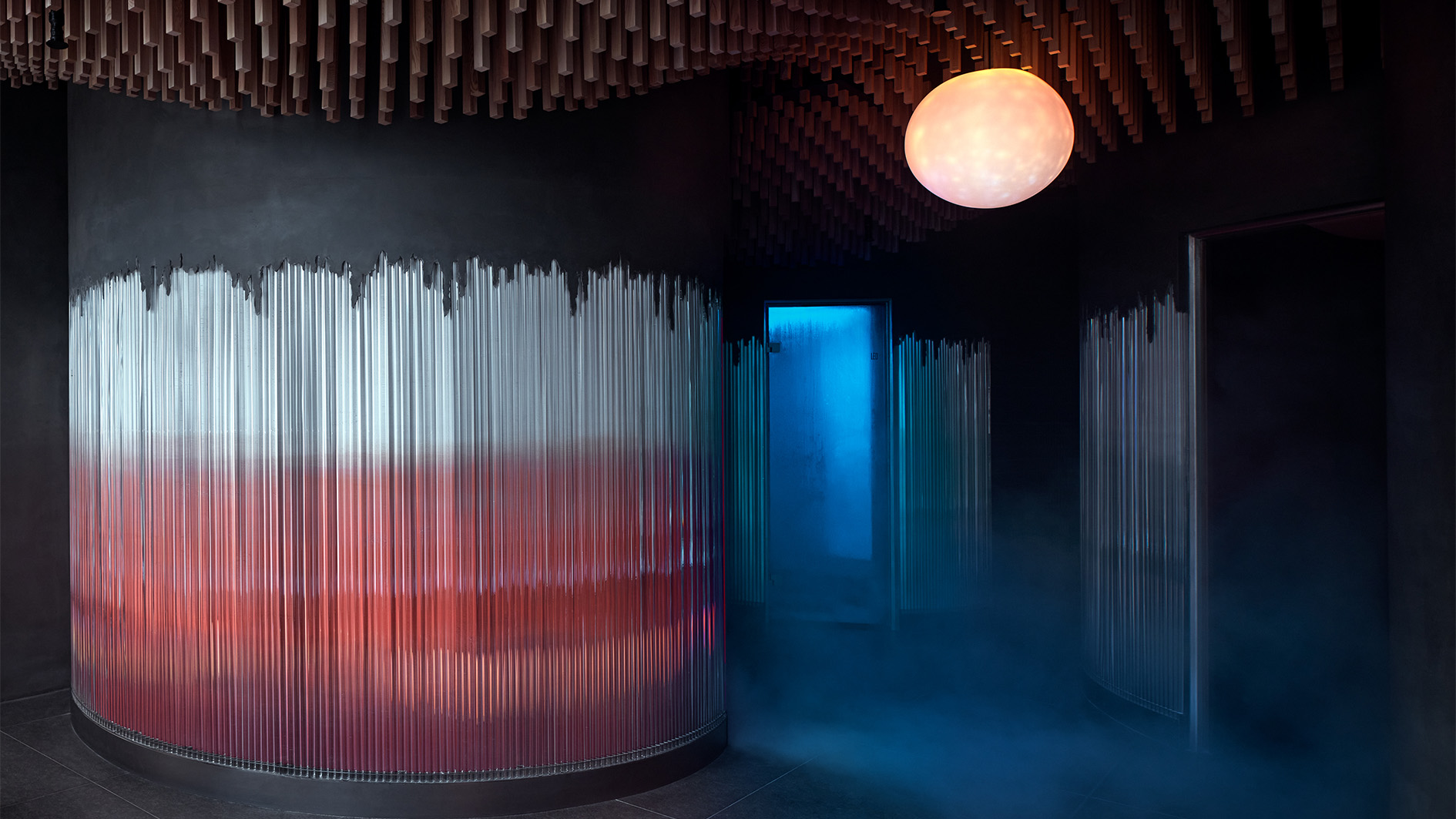 Spa experiences in superlative surroundings, to revitalise mind and body
Spa experiences in superlative surroundings, to revitalise mind and bodyThese spa experiences offer the ultimate in wellness and relaxation in serene settings around the world
By Sofia de la Cruz